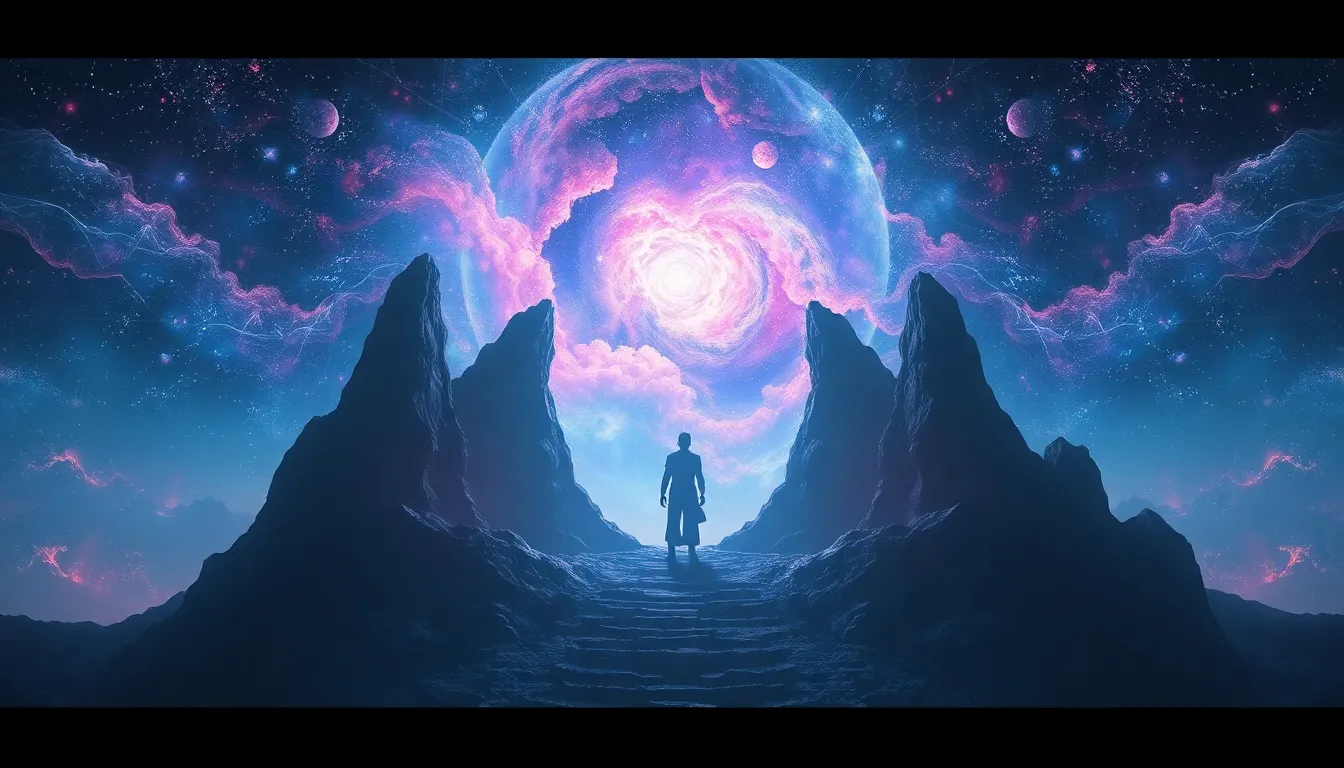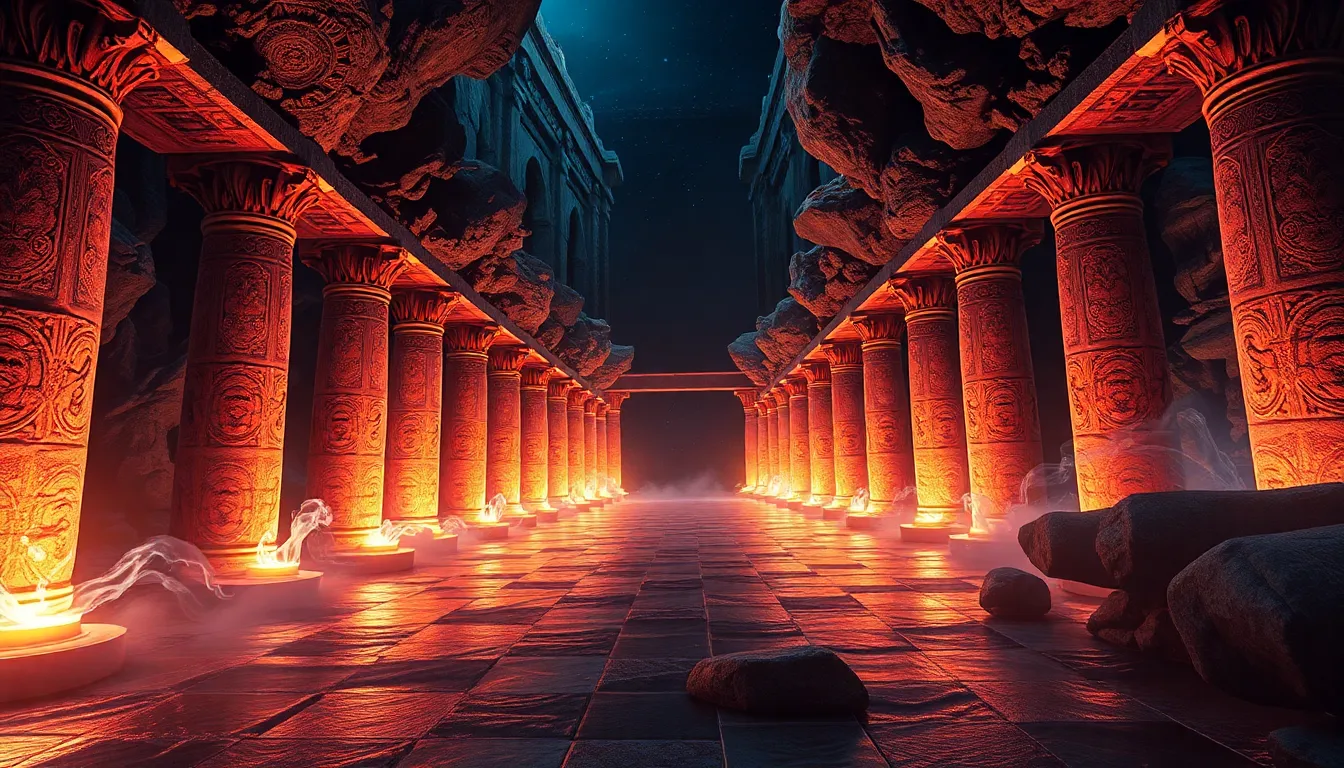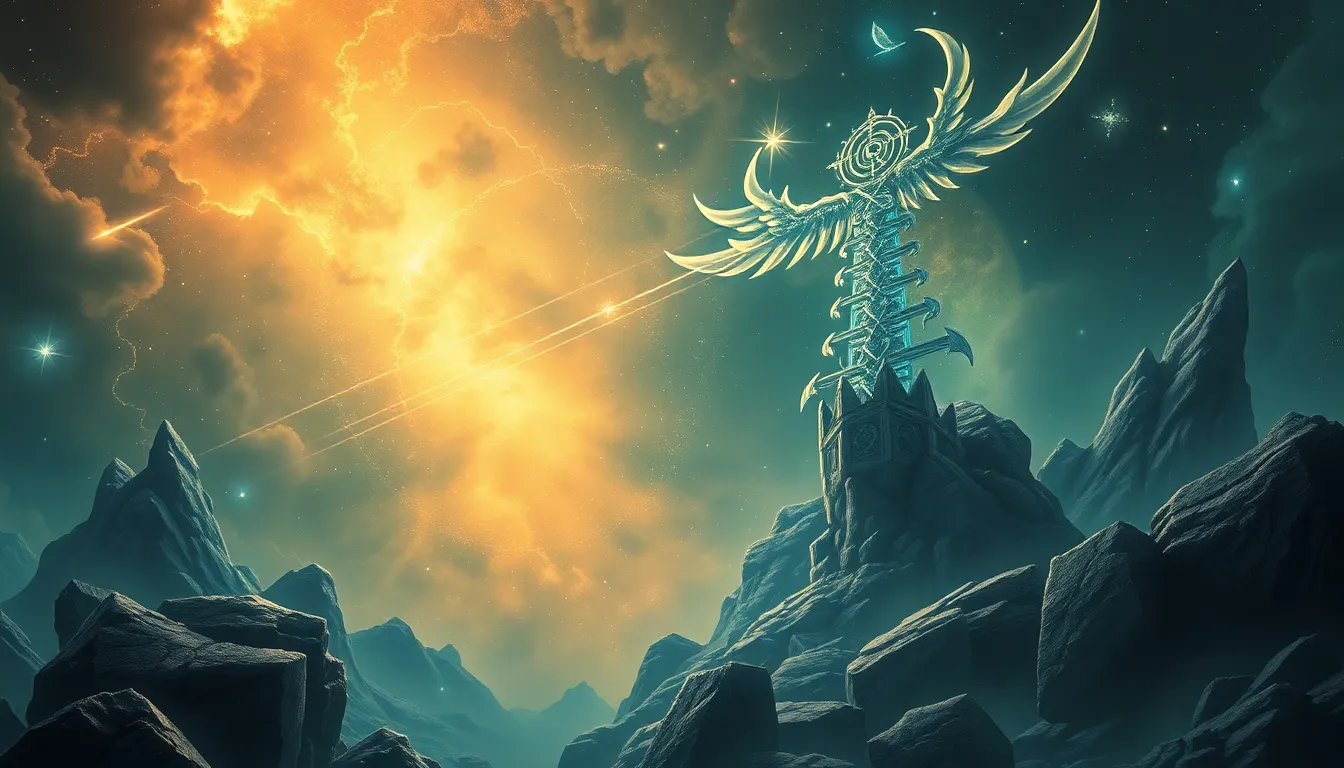The Quest for the Infinite: Myths of the Universe
1. Introduction to the Infinite
The concept of the infinite has captivated human thought across various domains such as mathematics, philosophy, and cosmology. In mathematics, infinity is often represented as a limit that cannot be reached, yet serves as a critical tool in calculations and theories. Philosophically, infinity raises profound questions about existence and the nature of reality, while in cosmology, it prompts inquiries into the vastness of the universe and the possibility of endless space and time.
Throughout history, humanity has been fascinated by the infinite, seeking to understand its implications and how it relates to our existence. From ancient myths to modern scientific theories, the quest for the infinite reflects a deep-rooted desire to comprehend the cosmos and our place within it.
2. Ancient Civilizations and Their Cosmologies
Ancient civilizations crafted rich mythologies to explain the universe and its origins. These myths often featured gods, celestial bodies, and natural phenomena, serving as a narrative framework to understand the world around them.
- Babylonian Myths: The Babylonians believed in a universe created from chaotic waters, with deities like Marduk shaping the cosmos.
- Egyptian Cosmology: In ancient Egypt, the universe was seen as a manifestation of divine order, with the sun god Ra traversing the sky, representing the cycle of life and death.
- Greek Mythology: The Greeks imagined an infinite cosmos governed by gods, with the concept of the universe being both finite and infinite, as seen in the works of philosophers like Anaximander and Plato.
These ancient myths not only provided explanations for natural phenomena but also influenced the development of modern cosmological thought, laying the groundwork for future explorations of the universe.
3. The Infinite in Eastern Philosophies
Eastern philosophies offer unique perspectives on the concept of infinity. In traditions such as Hinduism, Buddhism, and Taoism, the universe is often viewed as cyclical rather than linear.
- Hinduism: The cyclical nature of time is emphasized through concepts like Samsara, where the universe undergoes endless cycles of creation and destruction.
- Buddhism: In Buddhism, the notion of impermanence suggests that all things are transient, reinforcing the idea of an infinite cycle of rebirth.
- Taoism: Taoist philosophy embraces the infinite as a fundamental aspect of the Tao, which is the source of all existence, flowing through everything in an ever-changing universe.
This cyclical perspective contrasts sharply with the Western view of linear time, influencing how different cultures understand existence and the cosmos.
4. The Age of Enlightenment and Scientific Revolution
The Age of Enlightenment marked a significant shift from mythological explanations to scientific inquiry in understanding the cosmos. Key figures emerged, reshaping the narratives that had dominated human thought for centuries.
- Nicolaus Copernicus: Proposed a heliocentric model of the universe, challenging the geocentric view and prompting a re-evaluation of humanity’s place in the cosmos.
- Galileo Galilei: Utilized the telescope to observe celestial bodies, providing empirical evidence that further supported Copernicus’s theories.
- Isaac Newton: Formulated the laws of motion and universal gravitation, laying the groundwork for classical mechanics and altering the understanding of space and time.
These scientific discoveries profoundly impacted mythological narratives, as the universe began to be seen through the lens of reason and observation rather than through divine intervention alone.
5. The Modern Scientific Perspective on the Universe
Today, our understanding of the universe is framed by advanced scientific theories such as the Big Bang and the concept of a multiverse. Modern physics grapples with the role of infinity in various contexts:
- Black Holes: Regions of spacetime where gravity is so intense that nothing, not even light, can escape, challenging our understanding of space and time.
- Quantum Mechanics: Introduces complexities such as superposition and entanglement, suggesting a universe that may be fundamentally interconnected in ways that defy traditional logic.
Scientific advancements continue to reshape ancient myths, often finding parallels in contemporary theories that echo the narratives of old, albeit in a new context.
6. Cultural Myths and the Infinite Universe
Contemporary culture reflects our enduring fascination with the infinite through various narratives in literature and media. Science fiction and fantasy genres, in particular, explore themes of the infinite universe:
- Literature: Authors like Isaac Asimov and Arthur C. Clarke have used the infinite to explore humanity’s relationship with technology and the unknown.
- Films: Movies such as “Interstellar” and “The Matrix” delve into concepts of time, space, and alternate realities, often invoking mythological themes.
These narratives not only entertain but also reflect societal hopes and fears about the cosmos, showcasing humanity’s ongoing quest to understand the infinite.
7. Philosophical Implications of an Infinite Universe
The infinite universe poses significant philosophical questions about existence, time, and space. Paradoxes arise that challenge our understanding:
- Zeno’s Paradox: Questions the nature of motion and division, suggesting that infinite subdivisions create logical contradictions.
- Hilbert’s Hotel: A thought experiment illustrating the counterintuitive properties of infinite sets and their implications for understanding reality.
Philosophical debates surrounding the nature of reality continue to evolve as our understanding of the infinite deepens, prompting new inquiries into the essence of existence and perception.
8. The Intersection of Science and Myth
Scientific discoveries often inspire new myths, as the boundaries between science and mythology blur. For instance:
- Time Travel: Theoretical physics introduces concepts of time travel that echo mythological narratives of gods and heroes traversing time.
- Alternate Realities: Ideas in quantum mechanics suggest the existence of parallel universes, reminiscent of mythological worlds.
Case studies illustrate how myths evolve alongside scientific understanding, reflecting humanity’s attempt to make sense of new revelations about the universe.
9. The Future of Humanity and the Infinite Cosmos
As we contemplate our future in an infinite universe, several speculations arise:
- Extraterrestrial Life: The search for alien life raises profound mythological implications regarding humanity’s uniqueness and place in the cosmos.
- Ethical Considerations: As we explore the universe, ethical responsibilities emerge concerning our actions and their potential impacts on other forms of life.
These considerations challenge us to reflect on our role in the grand tapestry of the universe and the infinite possibilities that await.
10. Conclusion
The quest for the infinite has been a defining aspect of human thought, weaving through mythology, philosophy, and science. As we continue to explore the cosmos, the interplay between ancient myths and modern scientific understanding invites us to ponder our existence and the infinite mysteries that lie ahead. The infinite universe remains not just a topic of inquiry but a profound source of inspiration, reflection, and wonder.



